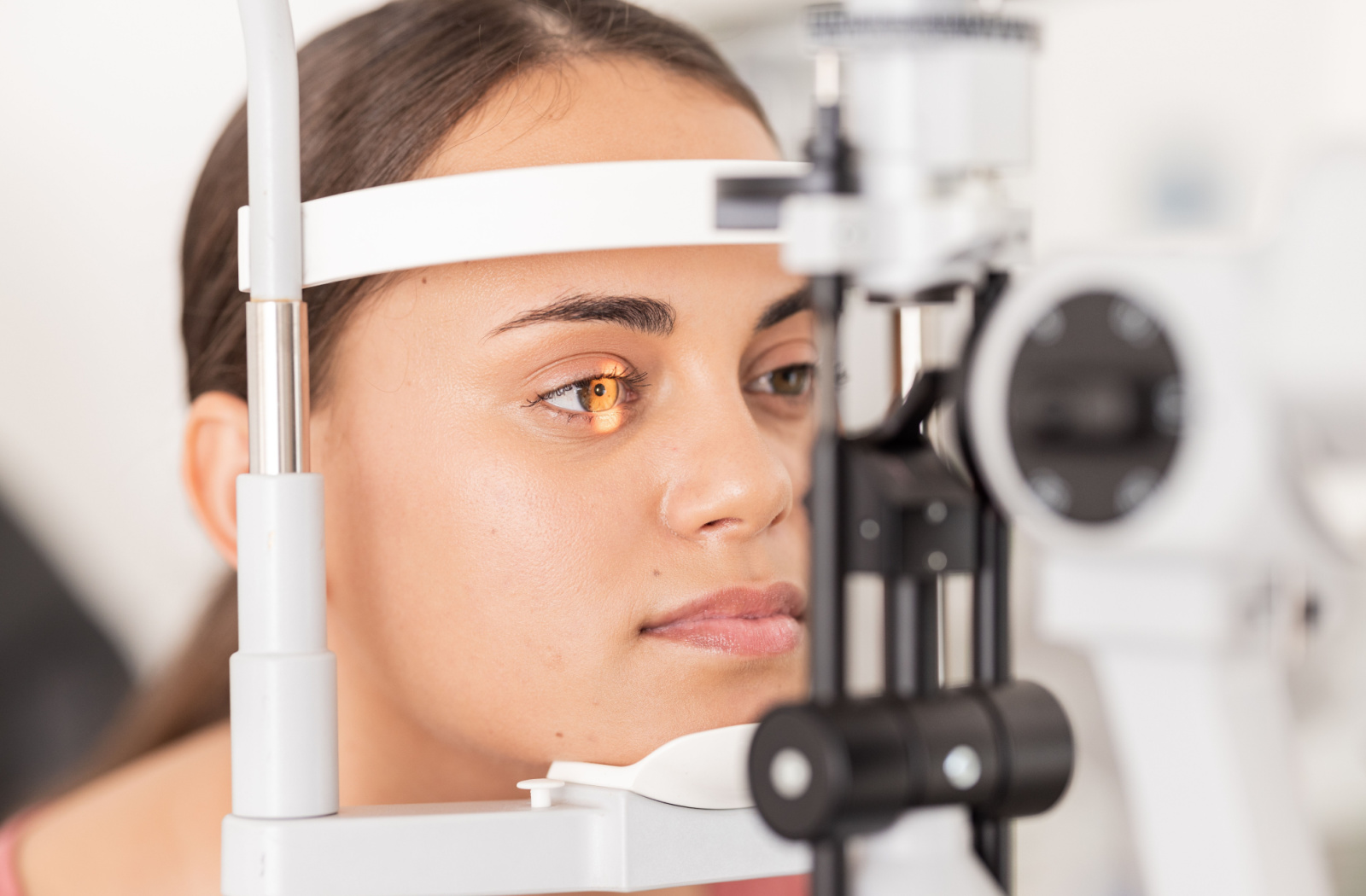Vision is an incredibly complex human ability, yet one that’s affected by the simplest of things. Optometrists can examine your eyes and help you see clearer with eyeglasses or contact lenses. Yet, when we have trouble seeing something, our body already has a natural reaction. We squint.
While it’s an interesting reaction, what may be even more interesting is that it can actually work! You can see better when you squint because you reduce the intensity of the light entering your eye. It won’t ever replace a good pair of glasses, but it’s a fascinating phenomenon nevertheless.
Understanding Vision
Before we explore squinting, let’s have a quick refresher on the basics of vision. The eye is an intricate sensory organ that works harmoniously with the brain to process visual information about the external world.
At the heart of sight is the eye’s lens and retina. When light enters the eye, the lens focuses it onto the retina, a layer of light-reactive cells that shoot the information to the brain via the optic nerve. Your brain interprets these signals, allowing us to perceive the world in intricate detail and colour.
Effects of Squinting
Squinting is a natural response to situations where something appears out of focus or when the surrounding light is too bright. This action involves closing your eyelids partially, narrowing the eye’s opening. This can slightly change your eye’s shape, but there is no evidence that it changes enough to affect your vision.
Instead, squinting reduces the amount of light that can pass through the lens. This can be helpful in excessively bright conditions, as it prevents overwhelming the retina with too much light. Conversely, in dim lighting, this reduction may aid in seeing more clearly, thanks to the reduced light scattering within the eye, leading to better image definition.
Think of it this way. Blurry vision occurs when light doesn’t land directly on your retina. Instead, it spreads all over the place and obscures the image you want to see like static on a screen. Squinting reduces the amount of static, leaving just the focused light landing on your retina. This is called the “pinhole effect,” and it’s the same way camera lenses focus on their subjects.
If you want to try a fun experiment, look at something far away. Shut one of your eyes and create a circle with your index finger and thumb in front of the other one. Slowly close the hole, and the distant object should become slightly clearer.
Is Squinting Bad for Your Eyes?
Research into the act of squinting and its effects on vision is limited. However, anecdotal evidence suggests that it can offer short-term improvements under certain conditions, but it’s by no means a long-term solution for vision problems.
Squinting won’t hurt your eyes, but it can be a symptom of another, more serious, eye condition.
If you notice your child frequently squinting, it may be a sign that we should take a closer look at their eye health. Squinting may indicate refraction errors, such as:
- Myopia (nearsightedness)
- Hyperopia (farsightedness)
- Astigmatism
These are all refractive errors where the shape of the eye doesn’t bend light correctly, resulting in a blurred image. These conditions are common and can easily be diagnosed during an eye examination. Untreated vision problems can affect your child’s performance in school, sports, and more.
In children, persistent squinting might suggest amblyopia, commonly known as a lazy eye, where each eye’s strength isn’t developing equally, or strabismus, where the eyes don’t properly align. Squinting alone isn’t generally enough to diagnose a vision issue, so other common signs may be:
- Complaints of eye fatigue
- Seeing double
- Short attention span
- Eye rubbing or excessive blinking
- Covering one eye to see
- Avoiding reading
- Headaches
Whatever the underlying reason, squinting is the symptom, not the disease. It’s our eyes telling us they’re working harder than they should be.
How to Stop Squinting
While squinting can improve your vision, it’s hardly sustainable. Corrective lenses can offer long-term vision correction if you need it. If you need just a slight improvement to your visual clarity, there are other approaches you can take, such as:
- Practice good eye care habits such as taking regular breaks and maintaining a healthy diet rich in vision-supporting nutrients.
- Adjust your nearby lights to reduce glare while giving yourself enough to see.
- When working on a computer, adjust your screen’s brightness and contrast for comfortable viewing.
- Use the 20-20-20 rule when working for long periods.

Stop Squinting & Start Seeing
The fact that something as simple as squinting can change your vision reminds us how fascinating our eyes are. While squinting has its uses, it can also indicate something deeper going on, especially when it comes to your child’s vision.If you’re worried about your child’s squinting—or simply tired of doing it yourself—Willoughby Doctors of Optometry can help you enjoy clear vision with eyes wide open. With a comprehensive eye exam, we can examine your eyes and determine what’s making it harder to see. So, stop squinting and book your appointment today!











